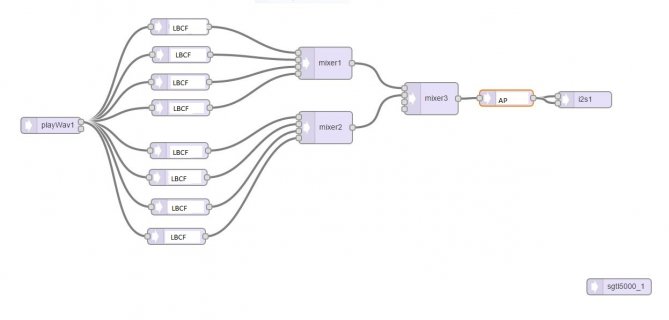Dear all,
I have written the two building blocks of the freeverb algorithm
as defined in https://ccrma.stanford.edu/~jos/pasp/Freeverb.html
(I basically edited Paul's biquad filter code, as Paul himself suggests).
Installation is very easy : you should add the two lines :
#include "filter_lbcf.h"
#include "filter_ap.h"
to your Audio.h file and add the four files filter_lbcf.* and filter_ap.* to the directory where Audio.h resides
I add an implementation of freeverb
and show the topology (of course these are not objects of the gui so this is just for demonstration)
but of course other topologies are possible
as in http://www.mathworks.com/examples/matlab-dsp-system/2338-adding-reverberation-to-audio-using-freeverb-algorithm
which allows some control.
*my example requires that you have the sample audio files on the sd card
and of course that you have an sd card present...
enjoy and please share your comments
I have written the two building blocks of the freeverb algorithm
as defined in https://ccrma.stanford.edu/~jos/pasp/Freeverb.html
(I basically edited Paul's biquad filter code, as Paul himself suggests).
Installation is very easy : you should add the two lines :
#include "filter_lbcf.h"
#include "filter_ap.h"
to your Audio.h file and add the four files filter_lbcf.* and filter_ap.* to the directory where Audio.h resides
I add an implementation of freeverb
and show the topology (of course these are not objects of the gui so this is just for demonstration)
but of course other topologies are possible
as in http://www.mathworks.com/examples/matlab-dsp-system/2338-adding-reverberation-to-audio-using-freeverb-algorithm
which allows some control.
*my example requires that you have the sample audio files on the sd card
and of course that you have an sd card present...
enjoy and please share your comments
Attachments
Last edited:


